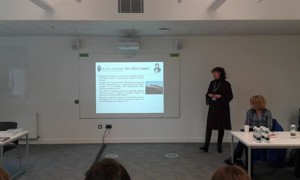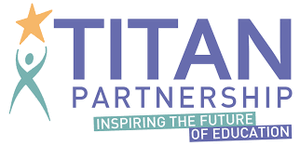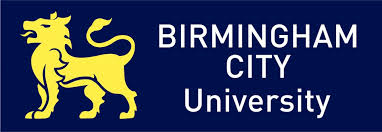Birmingham City University and Titan Partnership with Eureka
SJL was honoured to contribute to an European Union (EU) Erasmus project along with Titan Partnership Ltd. and Birmingham City University by Carol Aubrey at the University of Warwick. Carol Aubrey is Emeritus Professor of Early Childhood in the Institute of Education at the University of Warwick and also a visiting Professor with Birmingham City University since 2009. Titan is the lead organisation and responsible for project planning, implementation and outputs assigned through the project. It is an educational charitable company limited by guarantee and has partnerships with over 50 member organisations ranging from children’s centres, primary schools, secondary schools/academies, FE colleges to universities which helps young people to aim high, fulfil their potential and to develop the skills and capabilities for success. Partner countries involve England, Greece, Ireland and the Czech Republic. This is the second phase of the project in which host countries showcase their best practice in respect of identification and monitoring, effective classroom practice, applying for university and so on, in a series of national seminars.
Ofsted reports of 2013 and 2015 on provision for our most able students and a decade of Sutton Trust reports have indicated the continuing challenge to non-selective secondary schools to break the ‘glass ceiling’ that continues to restrict access to the UK professional elite for those who are not educated in the private sector. Mrs Brining delivered a presentation entitled The Whole School Approach: Perspective of Head of MASt and Gifted and Talented to English, Irish, Greek and Czech researchers, psychologists and educators to share our whole-school approach.

Seminar Objectives
To introduce current psychological and pedagogical definitions of Giftedness and Talent in the English context (with a particular focus on outstanding exemplars);
To explore identification and support of most able and talented students in the state and private sector in the early stages (primary and secondary level);
To consider the particular challenges of under-achievement and the identification of students from disadvantaged and less well-resourced backgrounds;
To consider the whole-school approach (private, maintained, selective/non-selective/specialist) for students who show high academic abilities in many areas and for students who show particular talents (e.g. school mission, contact with parents, ‘what we look for’, identification and monitoring, curriculum, mentoring, particular qualities, talents and skills of teachers, staff training, transition/moving on to the next stage);
To examine the role of specialists/outside experts to the performance of gifted and talented students and to their future aspirations and attainment;
To showcase outstanding examples of provision for gifted and talented students through visits and presentations by principals/senior teachers who are willing ‘to bring the school to the group’; finally,
To reflect on the statement – all students have individual needs, making personalised learning a priority in our teaching and learning for all is our goal, including those most gifted and talented. How far have we achieved this and how, in different social and cultural context of Europe?
Sir John Lawes contribution to have a significant role in fulfilling all of these objectives, showcasing identification, specialist provision and support, as well as transition to a future career/university.
Rationale
As noted by Ofsted (2013; 2015) too many of our most able and talented children and young people are underperforming especially in our non-selective state secondary schools and fail to reach their potential.
To succeed as an economy and as a society, they stressed the need to ensure that such students became the political, commercial and professional leaders of the future.
Schools and other educational institutions should be ready to create an atmosphere of acceptance, recognition and inspiration for the most able and talented children from any background in any country. This includes knowledge and skills in early identification, supporting with the most appropriate curriculum and involving parents/carers in the process of education. We have formed a partnership of four countries to build on a previous Talented Children Project (2014).
The project aims
- to create a detailed manual for identification of most able and talented children which can be used across national boundaries. It will be created through exchange of practice from all partners and build on the previous project.
- to deliver two multi-disciplinary seminars/courses for teachers and other associated professionals, based on the exchange of practice which will provide training on identification of gifted and talented children in education and include successful intervention techniques and resources.
Different partners bring different areas of expertise and will make contributions accordingly.
Target groups
Educational professionals, for example, principals, teachers, guidance assistants and psychologists.
The Role of SJL
As an outstanding national exemplar of MASt provision we not only illustrate all the seminar objectives identified above but together with other exemplar cases (from music, sport, dance as well as high academic achievement) sheds light and illuminates the needs of talented young people and their educators.
Reception
‘Thank you so much for your superb contribution to our European seminar yesterday. I think that you do not need me to say that it was very well received by a very varied group of teachers, university lecturers and researchers, and a senior medical practitioner/psychologist.’
‘This stimulated wide interest and discussion among the delegates and contributed to a wider perspective on the English approach to more able and talented students.’
‘It was a privilege to share some of the policies and practices of your school from your perspective, the perspective of your staff and students. Somehow this conveyed something of the additional dedication and commitment, the coaching, practice and mentoring that lies behind it.’





